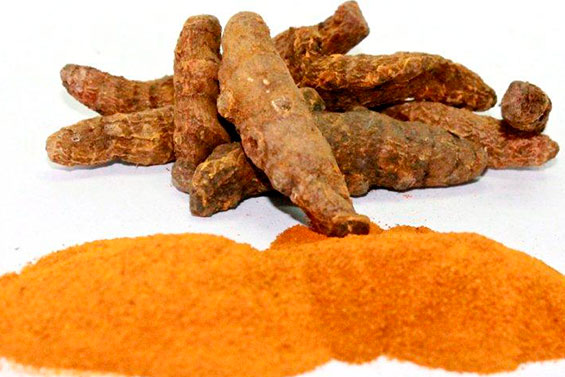
|
Product: Turmeric (Curcuma longa)
|
|
| Basic Information: Considered a magical plant given its organoleptic characteristics and therapeutic and protective properties, especially at the liver and skin level. In the lowland jungle it grows on clay-silt soils (beaches) that were fertilized during the river's rising stage, leaving the land open during the river's low waters. | |
|
Origin: India
|
Region: -
|
|
Seasonality:
Jan
Feb
Mar
Apr
May
Jun
Jul
Aug
Sep
Oct
Nov
Dec
|
|
|
Certifications: RTPO Peru, Kosher
|
Available presentations: Whole dehydrated, powder.
|
|
Suggested industrial applications: Food industry: meat products, sausages, fisheries, preparations, baking, pastry, dairy products, ice cream, nutrition and fitness, dietary supplements, healthy snacks, beverages.
|
|
|
Uses: Aromatic seasoning, food additive.
|
|
| Properties: The extract of this plant is used as a food coloring in two ways: as turmeric (crude extract), cataloged with the food code of the European Union as E-100ii, it shows a yellow color and is extracted from the root of the plant; and as curcumin (purified or refined state); both states generally referred to as turmeric. | |
| Main functionality: It has antioxidant properties. Curcumin is capable of relieving inflammatory problems and is due to the ability to inhibit the synthesis of inflammatory prostaglandins. It is low in calories, low in fat and composed of carbohydrates. | |
| Secondary functionality: Relieves stomach upset. Turmeric is a very effective natural remedy for an upset stomach. Treats liver disorders. | |
Nutritional Table:
| Components / Components | Per 100g / Per 100g |
| Calories / Calories | 312 kcal |
| Water / Water | 8 g |
| Carbohydrates / Carbohydrates | 67.14 g |
| Proteins / Proteins | 9.68 g |
| Total fat / Total fat | 3.25 g |
| Fiber / Fiber | 22.7 g |
| Ash / Ash | - |
| Calcium / Calcium | 168 g |
| Phosphorus / Phosphorus | 2080 mg |
| Iron / Iron | 55 mg |
| Thiamine / Thiamine | 0.058 mg |
| Riboflavin / Rivoflavin | 0.150 mg |
| Niacin / Niacin | 1.350 mg |
| Ascorbic acid / Ascorbic acid | 0.7 mg |